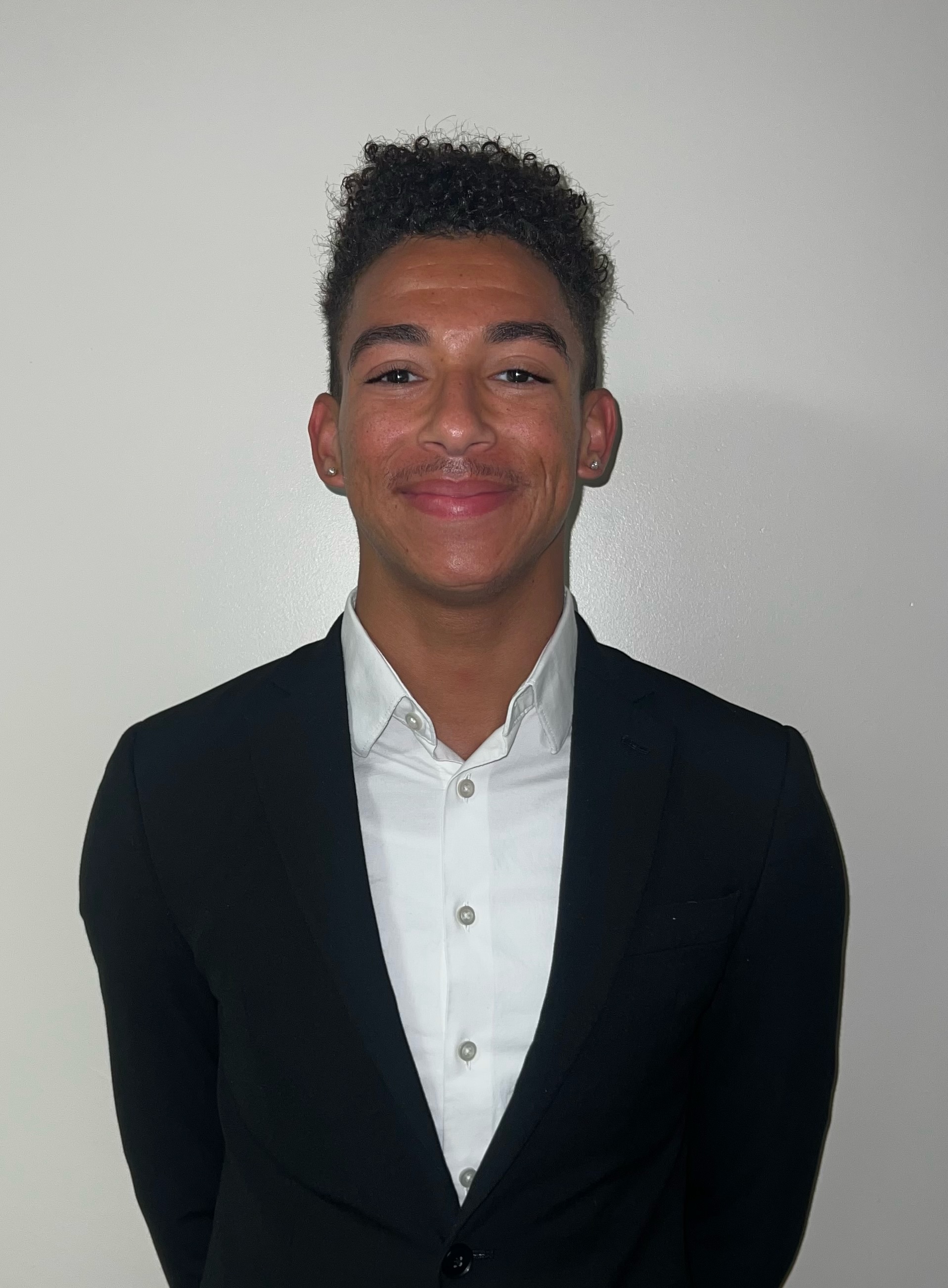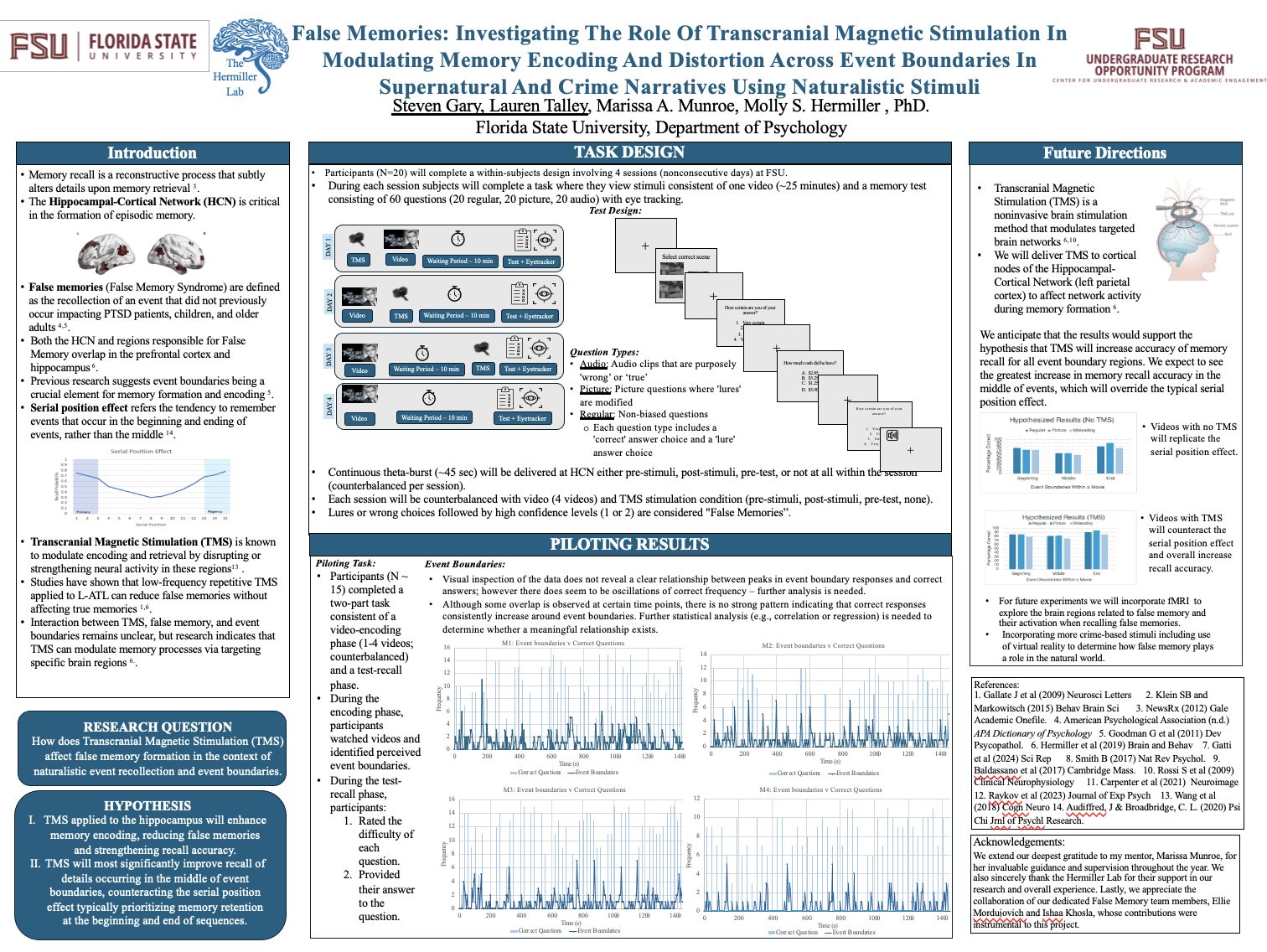Research Symposium
25th annual Undergraduate Research Symposium, April 1, 2025
Steven Gary Poster Session 3: 1:45 pm - 2:45 pm/ Poster #218

BIO
My name is Steven Gary and I am a second-year student at Florida State University studying Biology and Psychology. After graduation I plan on attending medical school. In the Hermiller Lab we are studying the hippocampus and its contributions to memory by using neuroimaging and brain stimulation to better understand how memories are formed, consolidated, and retrieved.
False Memories: Investigating The Role Of Transcranial Magnetic Stimulation In Modulating Memory Encoding And Distortion Across Event Boundaries In Supernatural And Crime Narratives Using Naturalistic Stimuli
Authors: Steven Gary, Marissa MunroeStudent Major: Biology, Psychology
Mentor: Marissa Munroe
Mentor's Department: Psychology Mentor's College: Florida sTATE university Co-Presenters: Lauren Talley
Abstract
False memories are defined as the distortion, in memory, of an event that has previously occurred. False memories impact a range of individuals including eyewitnesses, children, older adults with memory impairment, and individuals with PTSD. The hippocampal-cortical network (HCN) is inclusive of brain regions responsible for memory encoding and retrieval including the angular gyrus, hippocampus, and parietal lobe. Event boundaries occur when there’s a noticeable, or slight change in event scene, time, or context. They play a crucial role in memory formation by activating brain regions responsible for memory consolidation. We aim to investigate how non-invasive brain stimulation (Transcranial Magnetic Stimulation, TMS) mediates false memories, with particular focus on its effects within event boundaries. Our task includes a naturalistic test phase (a video) and a test phase (multiple choice, audio, picture questions). TMS is administered at different time points—before or after the video, before the test, or not at all (behavioral condition)—to determine the optimal stimulation timing for enhancing memory encoding, consolidation, and successful retrieval. We hypothesize that TMS applied to the left parietal site will enhance memory encoding and recall accuracy. Additionally, we predict that TMS will improve recall of details occurring in the middle of event boundaries, counteracting the recency effect, which prioritizes memory retention at the beginning and end of sequences. Results from our study will increase our understanding of how event boundaries reinforce memory consolidation and improve retrieval – additionally we will gain better understanding of how TMS affects memory retrieval for naturalistic stimuli.
Keywords: Psychology, Memory, Hippocampus, TMS

